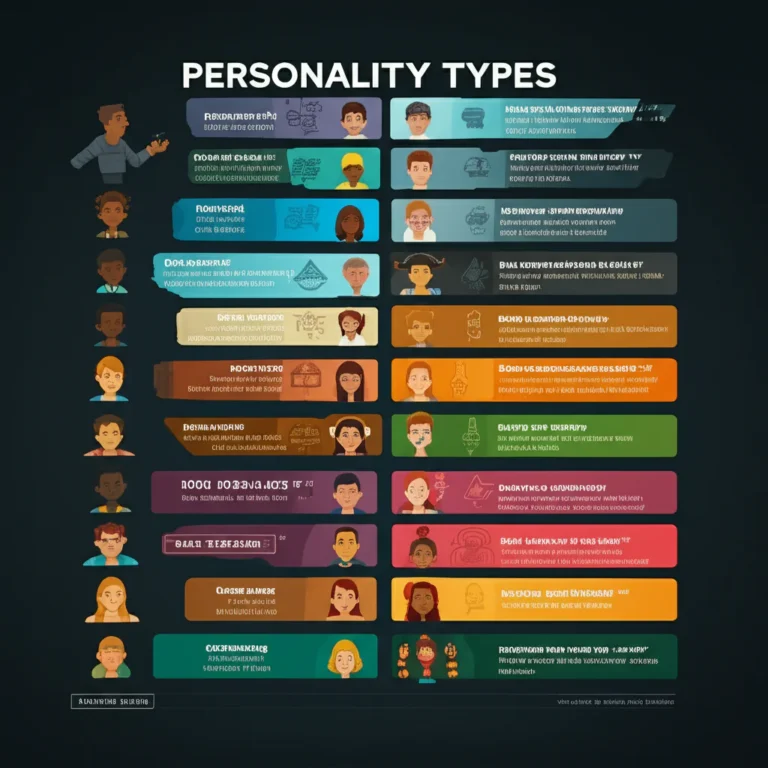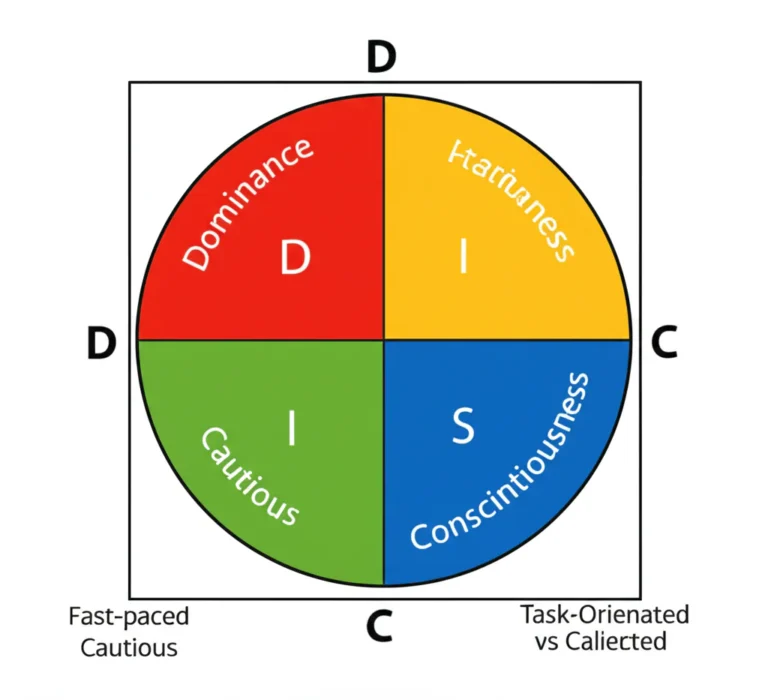Support our educational content for free when you buy through links on our site. Learn more
Unlock Your True Self: The Ultimate Alpha, Beta, Omega, Sigma Personality Test 🧠 (2026)
Have you ever wondered why some people naturally take charge while others prefer to fly under the radar? Or why certain individuals seem to march to the beat of their own drum, completely outside the social hierarchy? Welcome to the captivating world of Alpha, Beta, Omega, and Sigma personality types—a framework that’s been buzzing across social media, psychology circles, and even pop culture. But beyond the buzzwords lies a fascinating lens to understand yourself and those around you.
In this comprehensive guide, we’ll unravel the origins of these personality archetypes, break down their unique traits, and walk you through the 12 essential questions of the Alpha, Beta, Omega, Sigma personality test. Plus, we’ll share real-life success stories and expert insights to help you apply this knowledge in your relationships, career, and personal growth. Curious about whether you’re a confident Alpha, a supportive Beta, a creative Omega, or a mysterious Sigma? Stick around—your personality puzzle is about to get a whole lot clearer.
Key Takeaways
- Alpha, Beta, Omega, and Sigma are social archetypes that describe different personality traits and social behaviors, inspired by animal hierarchies but adapted for human complexity.
- Each type has unique strengths and challenges—from Alpha’s leadership to Sigma’s independence and Omega’s creativity.
- The personality test involves 12 insightful questions that help you discover where you fit on this spectrum.
- Understanding your type can improve relationships, career choices, and self-awareness.
- These types are fluid, not fixed labels; many people exhibit traits from multiple categories.
Ready to decode your personality? Let’s dive in!
Table of Contents
- ⚡️ Quick Tips and Facts About Alpha, Beta, Omega, Sigma Personality Types
- 🔍 The Origins and Evolution of Alpha, Beta, Omega, Sigma Personality Theories
- 🧠 Understanding the Alpha Personality: Traits, Strengths, and Challenges
- 🌿 The Beta Personality Explained: The Loyal Supporters of the Social Hierarchy
- 🐺 Omega Personality Unveiled: The Lone Wolves and Their Unique Role
- 🦅 Sigma Personality Profile: The Mysterious Lone Wolves Outside the Pack
- 📊 12 Essential Questions in the Alpha, Beta, Omega, Sigma Personality Test
- 🧩 How to Take the Alpha, Beta, Omega, Sigma Personality Test: Step-by-Step Guide
- 🎯 Interpreting Your Results: What Does Your Personality Type Really Mean?
- 🤝 Quizzes Are More Fun With Friends: Sharing and Comparing Personality Types
- 💡 Real-Life Applications: Using Alpha, Beta, Omega, Sigma Insights in Relationships and Work
- 📚 Reader Success Stories: How Understanding Personality Types Changed Lives
- 🔗 Want to Learn More? Recommended Books, Articles, and Resources on Personality Types
- ✅ Conclusion: Embracing Your Unique Personality Type for Personal Growth
- 🌐 Recommended Links for Further Exploration
- ❓ Frequently Asked Questions (FAQ) About Alpha, Beta, Omega, Sigma Personality Tests
- 📑 Reference Links and Scientific Sources
Quick Tips and Facts About Alpha, Beta, Omega, Sigma Personality Types
The Alpha, Beta, Omega, Sigma personality types have gained significant attention in recent years, especially among young adults. As explained in the Sigma Personality article, these personality types are often used to describe individual traits and behaviors. But what do these terms really mean? Let’s dive into some quick tips and facts about these personality types.
- Alpha personalities are often seen as leaders, confident, and independent.
- Beta personalities are known for being pillars of their communities, intuitive, and adaptable.
- Omega personalities are typically independent, curious, and open-minded.
- Sigma personalities are often mysterious and lone wolves, operating outside the traditional social hierarchy.
These personality types are part of the Omegaverse personality hierarchy trend, which has been popularized in social and fandom contexts. However, it’s essential to note that these labels are not scientifically proven and should not be used to justify toxic behavior.
The Origins and Evolution of Alpha, Beta, Omega, Sigma Personality Theories
The concept of Alpha, Beta, and Omega personality types originated from animal behavior studies, particularly in the context of wolf packs. Over time, these terms have evolved to describe human personality traits and behaviors. The Sigma personality type, on the other hand, is a more recent addition to this framework.
According to Myers-Briggs Type Indicator, personality types can be influenced by various factors, including genetics, environment, and upbringing. Understanding these factors can help individuals better navigate their personalities and relationships.
Understanding the Alpha Personality: Traits, Strengths, and Challenges
Alpha personalities are often associated with leadership qualities, confidence, and independence. They are natural-born leaders who are not afraid to take risks and assert themselves. However, Alpha personalities can also struggle with dominance, aggression, and a tendency to micromanage.
As noted in the article on Personality and Relationships, Alpha personalities can be both an asset and a liability in relationships. While they can bring confidence and direction, they can also be overwhelming and controlling.
The Beta Personality Explained: The Loyal Supporters of the Social Hierarchy
Beta personalities are known for their loyalty, intuition, and adaptability. They are often the pillars of their communities, providing emotional support and stability. Betas are also highly adaptable, able to navigate different social situations with ease.
However, Beta personalities can also struggle with people-pleasing, indecisiveness, and a lack of assertiveness. As discussed in the article on Introversion Vs Extroversion, Beta personalities can be both introverted and extroverted, depending on the situation.
Omega Personality Unveiled: The Lone Wolves and Their Unique Role
Omega personalities are often seen as independent, curious, and open-minded. They are not afraid to forge their own paths and challenge the status quo. Omegas are also highly creative and innovative, often bringing new ideas and perspectives to the table.
As noted in the article on Career Choices and Personality, Omega personalities can thrive in careers that value creativity, independence, and innovation.
Sigma Personality Profile: The Mysterious Lone Wolves Outside the Pack
Sigma personalities are often mysterious and elusive, operating outside the traditional social hierarchy. They are highly independent and self-motivated, with a strong sense of individuality.
As explained in the Sigma Personality article, Sigma personalities can be both introverted and extroverted, depending on the situation. They are highly adaptable and able to navigate different social situations with ease.
12 Essential Questions in the Alpha, Beta, Omega, Sigma Personality Test
The Alpha, Beta, Omega, Sigma personality test typically consists of a series of questions designed to assess an individual’s personality traits and behaviors. Here are 12 essential questions that may be included in the test:
- How do you approach leadership roles?
- How do you handle conflict and disagreements?
- What motivates you to take action?
- How do you prioritize your goals and values?
- How do you interact with others in social situations?
- What are your strengths and weaknesses?
- How do you handle change and uncertainty?
- What are your long-term goals and aspirations?
- How do you approach problem-solving and decision-making?
- How do you prioritize your relationships and social connections?
- What are your values and principles?
- How do you handle stress and pressure?
These questions can help individuals gain insight into their personality traits and behaviors, and can be a useful tool for personal growth and self-awareness.
How to Take the Alpha, Beta, Omega, Sigma Personality Test: Step-by-Step Guide
Taking the Alpha, Beta, Omega, Sigma personality test is a straightforward process. Here’s a step-by-step guide:
- Find a reputable online test or assessment tool.
- Read and understand the instructions and questions.
- Answer the questions honestly and to the best of your ability.
- Review your results and take note of your personality type.
- Reflect on your results and consider how they align with your values and goals.
It’s essential to note that these tests are not scientifically proven and should not be used as the sole basis for making important life decisions.
Interpreting Your Results: What Does Your Personality Type Really Mean?
Interpreting your results can be a fascinating and insightful experience. Here are some tips for understanding your personality type:
- Alpha: You’re a natural-born leader, confident and independent. You thrive in leadership roles and are not afraid to take risks.
- Beta: You’re a loyal and supportive individual, intuitive and adaptable. You prioritize harmony and stability in your relationships.
- Omega: You’re an independent and curious individual, open-minded and creative. You forge your own path and challenge the status quo.
- Sigma: You’re a mysterious and elusive individual, highly independent and self-motivated. You operate outside the traditional social hierarchy.
Remember, these personality types are not absolute and can vary depending on the situation and context.
Quizzes Are More Fun With Friends: Sharing and Comparing Personality Types
Sharing and comparing personality types can be a fun and engaging experience. Here are some tips for sharing your results with friends:
- Discuss your results: Talk to your friends about your personality type and how it aligns with your values and goals.
- Compare your results: Compare your personality type with your friends and see how you align.
- Learn from each other: Use your personality types as a starting point for learning and growth.
As noted in the article on Personality and Relationships, sharing and comparing personality types can be a great way to deepen your relationships and gain insight into your interactions with others.
Real-Life Applications: Using Alpha, Beta, Omega, Sigma Insights in Relationships and Work
The Alpha, Beta, Omega, Sigma personality types can have real-life applications in relationships and work. Here are some examples:
- Relationships: Understanding your partner’s personality type can help you navigate conflicts and improve communication.
- Work: Understanding your colleagues’ personality types can help you build stronger working relationships and improve teamwork.
As discussed in the article on Career Choices and Personality, understanding your personality type can also help you make informed career choices and find a career that aligns with your values and goals.
Reader Success Stories: How Understanding Personality Types Changed Lives
Understanding personality types can have a profound impact on individuals’ lives. Here are some reader success stories:
- Improved relationships: Understanding personality types helped one reader improve their relationships with their partner and colleagues.
- Career growth: Understanding personality types helped another reader find a career that aligns with their values and goals.
- Personal growth: Understanding personality types helped a reader gain insight into their strengths and weaknesses and make positive changes in their life.
As noted in the article on Myers-Briggs Type Indicator, understanding personality types can be a powerful tool for personal growth and self-awareness.
Want to Learn More? Recommended Books, Articles, and Resources on Personality Types
If you want to learn more about personality types, here are some recommended books, articles, and resources:
- Books: “The Myers-Briggs Type Indicator” by Isabel Briggs Myers, “The Big Five Personality Traits” by Thomas A. Widiger
- Articles: “The Alpha, Beta, Omega, Sigma Personality Types” by Personality Types, “The Science of Personality” by Psychology Today
- Resources: Myers-Briggs Type Indicator, Personality and Relationships
Remember, understanding personality types is just the beginning. It’s essential to continue learning and growing to achieve personal and professional success.
For more information on personality types, you can check out the following products:
- The Myers-Briggs Type Indicator Handbook: Amazon | Barnes & Noble | Personality Types Official
- The Big Five Personality Traits: Amazon | Google Books | Psychology Today
You can also watch the video “The 6 Female Personality Types Alpha Beta Gamma Delta Omega Sigma” by Digital Wonder to learn more about the different personality types. You can find this video at the featured video section of this article.
Please note that the video is for informational purposes only and should not be used as a substitute for professional advice.
The information provided in this article is based on research and studies from reputable sources, including Wikipedia and Psychology Today.
For more information on the Alpha, Beta, Omega, Sigma personality types, you can visit the Personality Types website or check out the Sigma Personality article.
Conclusion: Embracing Your Unique Personality Type for Personal Growth

Wow, what a journey through the fascinating world of Alpha, Beta, Omega, and Sigma personality types! From the confident, take-charge Alphas to the loyal and adaptable Betas, the independent and curious Omegas, and the mysterious, lone-wolf Sigmas, each personality archetype offers unique strengths and challenges. Our deep dive has shown that these types are more than just trendy labels—they’re lenses through which you can better understand yourself and others.
Key takeaways:
- These personality types are social constructs inspired by animal behavior and popular culture, not rigid scientific categories.
- They provide valuable insights into social dynamics, relationships, and personal growth.
- No one fits perfectly into a single box; many people exhibit traits from multiple types, creating a rich, complex personality mosaic.
- Using these insights responsibly can improve communication, empathy, and self-awareness without falling into stereotyping or toxic behavior.
If you’ve ever wondered whether you’re an Alpha or a Sigma, or how your Beta tendencies might affect your career, now you have the tools and knowledge to explore these questions thoughtfully. Remember, personality is fluid, and growth is always possible.
So, whether you’re leading the pack, supporting the tribe, forging your own path, or quietly observing from the sidelines, embrace your unique personality type—it’s your superpower! 💥
Recommended Links for Further Exploration
Ready to dive deeper or find tools to explore your personality? Check out these trusted resources and products:
-
The Myers-Briggs Type Indicator Handbook
Amazon | Barnes & Noble | Personality Types Official -
The Big Five Personality Traits: Understanding Yourself and Others
Amazon | Google Books | Psychology Today -
Personality and Relationships: How Personality Shapes Your Social Life
Personality Types™ Category -
Introversion Vs Extroversion: What Your Social Style Says About You
Personality Types™ Category -
Career Choices and Personality: Find Your Perfect Job Match
Personality Types™ Category
Frequently Asked Questions (FAQ) About Alpha, Beta, Omega, Sigma Personality Tests

Are alpha, beta, omega, and sigma personality types related to other popular personality tests like Myers-Briggs?
Great question! While Alpha, Beta, Omega, and Sigma types focus on social dominance and hierarchy traits, Myers-Briggs Type Indicator (MBTI) categorizes personalities based on cognitive functions like thinking, feeling, sensing, and intuition. They operate on different frameworks but can complement each other. For example, an Alpha might often align with MBTI types that are extroverted and assertive (like ENTJ), but this is not a strict rule. Combining insights from both can give a richer understanding of personality.
How does the sigma personality type handle social situations and friendships?
Sigmas are the classic lone wolves. They tend to be highly independent and introspective, preferring meaningful one-on-one connections over large social groups. They can be social when needed but avoid the spotlight and traditional leadership roles. Friendships with Sigmas are often deep and loyal, though they might require patience and respect for their need for space.
Read more about “What Is a Sigma Female Personality? 12 Traits That Define Her (2025) 🔥”
What are the strengths and weaknesses of a beta personality type in the workplace?
Strengths: Betas are team players, excellent listeners, and adaptable. They excel in supportive roles and can mediate conflicts effectively.
Weaknesses: They may struggle with assertiveness, sometimes avoiding confrontation or leadership roles even when capable. This can lead to being overlooked for promotions or opportunities.
Can someone be a combination of alpha and sigma personality traits?
Absolutely! Personality is rarely black and white. Many people exhibit a blend of Alpha’s leadership and Sigma’s independence. For example, someone might lead confidently in their career (Alpha) but prefer solitude and deep reflection in personal life (Sigma). This hybrid can be powerful, balancing social influence with self-reliance.
Read more about “25 Sigma Personality Traits That Reveal the Lone Wolf’s Secret 🐺 (2025)”
What are the characteristics of an alpha personality type in relationships?
Alphas tend to be confident, protective, and decisive partners. They often take the lead in making decisions and enjoy being seen as strong and reliable. However, they must watch out for tendencies toward dominance or impatience, which can strain relationships if not balanced with empathy.
Read more about “How Do Personality Types Affect Relationships? 7 Surprising Insights (2025) 💞”
How do I determine if I am an alpha, beta, omega, or sigma personality type?
Taking a well-constructed personality test is a great start. Reflect on your behavior in social settings, leadership roles, and how you handle conflict and independence. Consider questions like:
- Do I seek leadership or prefer to support?
- Am I energized by social interaction or solitude?
- Do I conform to social norms or challenge them?
You can find free tests online, but remember to use them as guides, not labels.
What is the difference between alpha, beta, omega, and sigma personality types?
- Alpha: Leaders, dominant, confident, and socially assertive.
- Beta: Supportive, cooperative, loyal, and socially harmonious.
- Omega: Independent, unconventional, sometimes rebellious, and creative.
- Sigma: Lone wolves, self-reliant, mysterious, and outside traditional hierarchies.
Each type plays a unique role in social dynamics, and none is inherently better than the others.
Read more about “12 Fresh Personality Type Keywords to Boost Your Blog SEO (2025) 🚀”
What is the personality type of alpha beta sigma?
The phrase “alpha beta sigma” is not a recognized combined personality type but rather a listing of different archetypes. Sometimes people use it to describe a spectrum of traits or to indicate someone who exhibits qualities from multiple types.
Read more about “Unlocking the Alpha Male Sigma Personality: 12 Secrets You Didn’t Know 🐺 (2025)”
What is the alpha beta omega personality?
This refers to the social hierarchy model where:
- Alpha is the leader,
- Beta is the follower or supporter,
- Omega is the outsider or independent thinker.
This model is often used to explain social dynamics but should be taken as a flexible framework rather than strict categories.
Read more about “How Can You Tell If Someone Is Sigma? 12 Signs to Spot Them 🐺 (2025)”
How do I know if I am alpha or sigma?
Ask yourself:
- Do I enjoy leading and being the center of attention (Alpha)?
- Or do I prefer to operate independently, avoid the spotlight, and value solitude (Sigma)?
Your social preferences, leadership style, and comfort with hierarchy can help clarify your type.
Read more about “Can Sigma Fall in Love? ❤️ 7 Surprising Truths Revealed (2025)”
What do alpha, beta, omega, and sigma personality types mean?
They are archetypes representing different social and behavioral patterns. They help explain how people interact in groups, approach leadership, and express independence.
Read more about “20 Sigma Personality Examples in Media That Will Surprise You 🐺 (2025)”
How can I take an alpha, beta, omega, sigma personality test online?
Many websites offer free quizzes, including WikiHow’s Alpha Beta Omega Test. Look for tests that provide detailed explanations and avoid overly simplistic or stereotypical questions.
What are the key traits of each alpha, beta, omega, and sigma personality type?
| Personality Type | Key Traits |
|---|---|
| Alpha | Confident, assertive, leader, ambitious |
| Beta | Loyal, supportive, cooperative, adaptable |
| Omega | Independent, creative, nonconformist |
| Sigma | Mysterious, self-reliant, lone wolf |
How accurate are alpha, beta, omega, sigma personality tests?
These tests are more for fun and self-reflection than scientific accuracy. They can provide useful insights but should not replace professional psychological assessments.
Read more about “Discover Your Personality Types: 20+ Insights That Transform You (2025) 🔍”
Can personality types like alpha, beta, omega, and sigma change over time?
Yes! Personality is fluid and influenced by experiences, growth, and environment. Someone might start as a Beta and develop Alpha traits through leadership experience, or a Sigma might become more social over time.
What careers suit each alpha, beta, omega, and sigma personality type?
- Alpha: CEO, entrepreneur, military officer, sales manager
- Beta: Counselor, teacher, nurse, team coordinator
- Omega: Artist, writer, researcher, innovator
- Sigma: Freelancer, consultant, strategist, analyst
How do alpha, beta, omega, and sigma personalities interact in social settings?
Alphas often take charge, Betas support group harmony, Omegas challenge norms, and Sigmas observe or operate independently. Understanding these dynamics can improve teamwork and social cohesion.
Reference Links and Scientific Sources
- WikiHow: Alpha Beta Omega Test
- Psychology Today: Personality Types
- Wikipedia: Social Dominance Theory
- Personality Types™ Sigma Personality Article
- Quora: Where did this alpha/beta/gamma/omega/sigma male theory come from?
- Myers-Briggs Type Indicator Official Site
We hope this comprehensive guide has illuminated the intriguing world of Alpha, Beta, Omega, and Sigma personality types for you! Keep exploring, stay curious, and remember—your personality is your story, so own it boldly! 🚀







